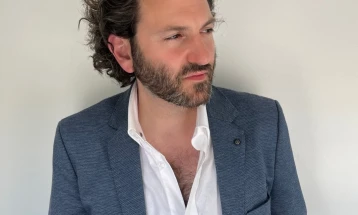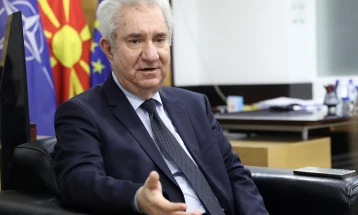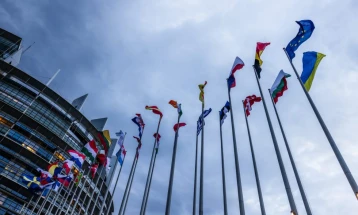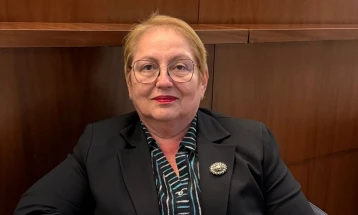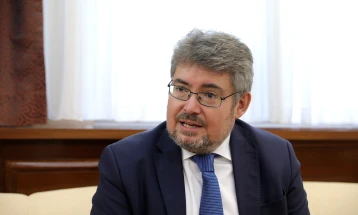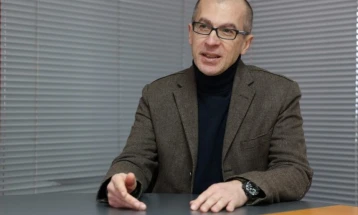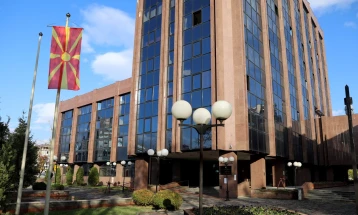Stefanini: EU has no other option than enlargement considering Ukraine war
- The message that the EU sent after Croatia's accession in 2013 was 'wait, wait' and the message now is 'move faster and you will get in'.
- Post By Ivan Kolekevski
- 10:51, 30 July, 2023
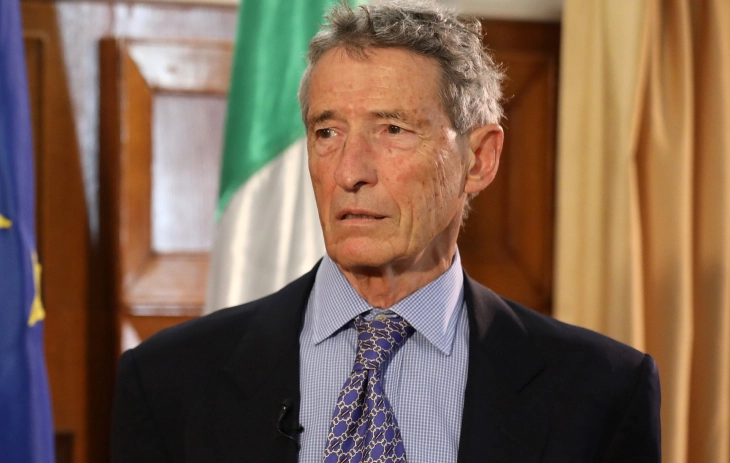
Skopje, 30 July 2023 (MIA) - The message that the EU sent after Croatia's accession in 2013 was 'wait, wait' and the message now is 'move faster and you will get in'. Considering the war in Ukraine, EU has no other option now than enlargement, because the EU cannot leave important countries to wait forever. This also requires adaptation on the part of the Union, and candidates that are capable to do their homework, like North Macedonia, have to be able to enter the EU within a reasonable time. It is up to you to be ready as soon as possible, says expert in global security issues Stefano Stefanini in an interview with MIA.
"North Macedonia has to roll up its sleeves and work in a bipartisan approach because entering the EU requires a consensus of all people and all political forces, says Stefanini, who was a diplomatic advisor to Italian President Giorgio Napolitano, Italian Permanent Representative at NATO, Deputy Chief of Mission at the Italian Embassy in Washington, and previously served in New York, United Nations, Moscow, Washington, Perth, Western Australia.

Below is the full interview with Stefanini, who paid a visit to North Macedonia in the capacity of Italy’s special envoy for Rome’s Expo 2030 bid. He has substantial expertise in transatlantic affairs, international security, defence capabilities and industry, as well as in Western and European relations with Russia and in EU affairs. Ambassador Stefanini also sits on the Board of Directors of the Center for American Studies in Rome, and is non-resident Senior Fellow of the Brent Scowcroft Center for International Security, Atlantic Council, Washington.

What will be the direction of the European security policy considering the war in Ukraine?
The European Union will undergo an internal change next year because of the elections for the European Parliament and the Commission. The EU has no other option now than enlargement, because the EU cannot leave important countries to wait forever. Turkey is an obvious example, and candidates that are capable to do their homework – Ukraine, North Macedonia, Montenegro – have to be able to enter the EU within a reasonable time. This also requires adaptation on the part of the Union and the EU has to become more geopolitical, and in strictly security-defense terms, I believe the way forward for the European Union is to strengthen its cooperation with NATO.

What is your position regarding the idea of a separate EU security policy?
That idea is dead. Look at Finland and Sweden. These are two important countries with significant military capabilities, which after 24 February 2022 and the Russian invasion of Ukraine, decided that their security required NATO membership, something that North Macedonia decided much earlier. This does not mean that the EU must give up on building its defense capabilities but makes it very clear that the EU defense capabilities are complementary to NATO. NATO is the pillar of European security.

Macedonia is at a crucial point of its enlargement plans. The Government is hoping the country can enter the EU by 2030. Is it reasonable to expect that and what should the country do to achieve this?
North Macedonia has to roll up its sleeves and work in a bipartisan approach because entering the EU requires a consensus of all people and all political forces. Because reforms are sometimes painful and you have to have the country behind you. This is what North Macedonia should do, and the EU must make it clear that if North Macedonia meets the targets that are required for membership by 2028, 2029 or whenever, then North Macedonia can enter. EU enlargement should involve the “regatta” criteria, so when you cross the line, you cross the line, you don’t have to wait the ones behind.

There are fears that Ukraine and Moldova can enter the EU before the countries of the Western Balkans. Is this possible?
This depends on what the individual countries do. Western Balkans countries, some of them at least, have worked towards accession for a long time already. So they are ahead of the curve compared to Moldova and Ukraine, but membership must be determined by what individual countries do. It is up to North Macedonia to be ready as soon as possible, and if North Macedonia is ready before Moldova or Ukraine it should enter before these countries. If Moldova and Ukraine move faster, then they will join first. It is up to individual countries, individual candidates, to move with as much speed as they can.

Do you think that the timetable for EU accession can help countries in the region to prepare better for the EU, because there is a high percentage of Euro-skepticism due to EU not delivering on its promises?
The message that has been sent since Croatia’s accession in 2013 is ‘we wait, we wait’ and the message now is ‘move faster and you will get in’. Of course is more Euro-skepticism than five or ten years ago. If people in North Macedonia, Montenegro, Serbia realize that ‘if we do it, then we enter the EU’, you will see that Euro-skepticism will abate.
Violeta Gerov
Photo: Darko Popov
